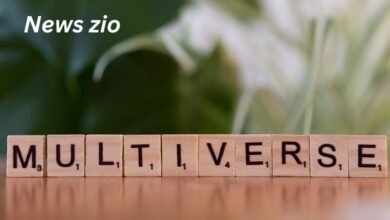Heyoka Empath: Traits, Struggles, and the Power of the Sacred Mirror

Among all empathic personalities, the Heyoka empath stands out as one of the most mysterious, powerful, and misunderstood. Rooted in Native American Lakota Sioux traditions, the Heyoka is known as the “sacred clown,” a figure who uses humor, paradox, and reflection to awaken others to deeper truths. Unlike other empaths who absorb emotions silently, Heyoka empaths mirror emotions back, often shaking people into awareness in unexpected ways.
This article explores what a Heyoka empath truly is, how to tell if you might be one, the struggles and blessings that come with the role, and the profound spiritual significance they carry.
What Is a Heyoka Empath?
A Heyoka empath is someone who reflects the emotions and behaviors of others, often in a playful, humorous, or blunt way, to highlight hidden truths. In Lakota Sioux culture, the word “Heyoka” refers to a sacred clown or contrarian—someone who does things backward or opposite to societal norms.
Rather than being merely sensitive, Heyoka empaths act as mirrors. If you’re sad, they might joke until you laugh; if you’re arrogant, they may display exaggerated arrogance to help you see yourself more clearly. Their purpose is not mockery but awakening.
How Rare Are Heyoka Empaths?
Heyoka empaths are believed to be extremely rare. While there are millions of empaths in the world, Heyoka empaths represent only a tiny fraction. Some estimates suggest less than 1% of the global population might embody this archetype. Their rarity adds to their mystique, as not everyone can relate to their unconventional ways of channeling empathy.
How to Tell If You Are a Heyoka Empath?
Recognizing a Heyoka empath requires more than acknowledging emotional sensitivity. Some key signs include:
-
Emotional Mirroring
You naturally reflect people’s emotions back to them, often in exaggerated or humorous ways. -
Unconventional Humor
You heal and connect with others through satire, wit, or paradoxical statements. -
Blunt Honesty
You speak truths others avoid, even if it makes people uncomfortable. -
Contrarian Nature
You tend to go against the grain—doing the opposite of what’s expected. -
Strong Intuition
You easily sense what others need emotionally, even if they can’t express it. -
Healing Through Disruption
You may provoke reactions that lead others to examine themselves more deeply. -
Need for Solitude
After intense interactions, you retreat to recharge and realign your energy.
If these traits resonate, you may indeed be aligned with the Heyoka empath spirit.
Who Is the Strongest Empath?
In spiritual and metaphysical communities, the Heyoka empath is often considered the strongest type of empath. This is because they are not just receivers of emotional energy—they transform it and use it as a tool for teaching. Their strength lies in their ability to challenge others, sometimes in uncomfortable ways, ultimately leading to profound growth.
Is a Heyoka Good or Bad?
The question “Is a Heyoka good or bad?” doesn’t have a simple answer. A Heyoka empath is not inherently either. Instead, they embody paradox.
-
Good Side: They heal, awaken, and bring hidden emotions to the surface. Their playful energy often uplifts others.
-
Challenging Side: Their bluntness, unconventional behavior, or confrontational humor can feel abrasive to those unprepared for such honesty.
Ultimately, Heyoka empaths are catalysts. They may stir discomfort, but their deeper purpose is transformation.
How Do You Confirm You Are an Empath?
To confirm you are an empath—Heyoka or otherwise—you can reflect on certain questions:
-
Do you deeply feel the emotions of others?
-
Do crowds or intense environments overwhelm you?
-
Do you need solitude to recharge after social interactions?
-
Do people often come to you for advice or comfort?
If you consistently answer yes, you are likely an empath. If, in addition, you notice mirroring behaviors, humor, and a contrarian approach, you may specifically be a Heyoka empath.
What Is the Heyoka Spirit?
The Heyoka spirit originates from Lakota Sioux traditions. It is a sacred role tied to visions of thunder beings. Those who carried the Heyoka spirit acted as clowns or opposites in ceremonies, exposing truths and guiding the community through paradoxical actions.
In modern spiritual circles, this spirit manifests as a powerful empathic ability that mirrors, heals, and awakens. It is both a blessing and a heavy responsibility.
What Are the Struggles of a Heyoka Empath?
While Heyoka empaths have remarkable gifts, they also face significant struggles:
-
Emotional Overwhelm – Constantly reflecting others’ emotions can lead to exhaustion.
-
Misunderstanding – Their humor and bluntness may be seen as offensive or confusing.
-
Isolation – Because few people understand their nature, they may feel alienated.
-
Energetic Burnout – Their intense empathy can drain them if they don’t practice self-care.
-
Responsibility – Carrying the role of a “mirror” means constantly balancing truth-telling with compassion.
What Is an Empath’s Biggest Fear?
For most empaths, the biggest fear is losing themselves in the emotions of others. They worry about:
-
Being consumed by external negativity.
-
Losing boundaries.
-
Feeling responsible for everyone’s healing.
For Heyoka empaths, this fear can be even greater because they often play the role of an emotional disruptor, making it difficult to separate their own energy from the emotional storms they stir.
What Is the Dark Side of a Heyoka Empath?
Every gift has a shadow. The dark side of a Heyoka empath includes:
-
Harshness: Their blunt truths may hurt more than heal if not balanced with compassion.
-
Isolation: Their unconventional behavior can push people away.
-
Emotional Drain: They may absorb negativity without realizing it.
-
Self-Doubt: Because they’re often misunderstood, they may question their purpose.
Despite these challenges, their dark side often becomes part of their strength once integrated with wisdom and mindfulness.
Conclusion
The Heyoka empath is rare, powerful, and deeply spiritual. Acting as mirrors, they challenge those around them to face truths, grow, and heal. Though their methods can be unconventional—sometimes humorous, sometimes blunt—they carry a profound purpose: awakening transformation in others.
If you identify with these traits, you may hold the gift and responsibility of the Heyoka spirit. It is a path of paradox, humor, struggle, and deep empathy—ultimately guiding you and those around you toward greater awareness and healing.
For more information visitNews Zio



